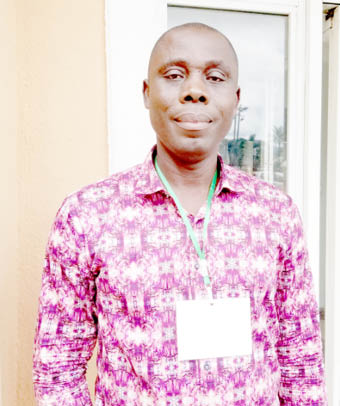Why Nigeria’s cocoa can’t compete in international markets – CAN
Godwin Ukwu is the National Vice Chairman of the Cocoa Association of Nigeria (CAN) in charge of Akwa Ibom, Cross River and Rivers states’ zone. In this interview, he explains why farmers should add value to cocoa production, noting why Nigeria’s cocoa byproducts are rejected in foreign markets. How do Nigeria’s cocoa byproducts fare […]

godwin
Godwin Ukwu is the National Vice Chairman of the Cocoa Association of Nigeria (CAN) in charge of Akwa Ibom, Cross River and Rivers states’ zone. In this interview, he explains why farmers should add value to cocoa production, noting why Nigeria’s cocoa byproducts are rejected in foreign markets.
How do Nigeria’s cocoa byproducts fare in international markets?
The international markets are not really sure of the hygienic conditions in which the cocoa byproducts are processed in Nigeria. This is the reason why they prefer to buy the raw bean directly so that they can process by themselves in their own cocoa processing plants. In those countries, they have lots of legislation prohibiting Nigerian farmers from exporting such byproducts until we meet their standards. Meeting their standards means Nigerian exporters must be certified by authorities in those countries. It is not like in Nigeria where everything is taken for granted.
How can individuals be involved in processing cocoa?
It depends on when the government allows them. You need to know that processing cocoa is a big deal. Who are the off takers? Secondly, and importantly, we do not consume cocoa much in Nigeria. So, for whom are we producing? If we have the habit of consuming chocolate or cocoa drinks substantially, definitely the demand will be high. We will then see how to satisfy the demand by adding value.
As we speak, there is no market for cocoa in Nigeria. But there are high demands and bigger markets in Europe and other Western countries. In those places, they prefer raw cocoa beans. There are lots of byproducts derived from it.
How can cocoa farmers add value to the business?
They can do so by crushing cocoa beans to powder, liquid or many other allied products. But the problem is that we do not really have cocoa processing plants in Cross River State that can help farmers add value. However, there may be smaller plants that produce chocolates sold by the roadsides. There is a big plant in Ijebu Mushin in Ogun State which runs 24 hours, producing 60 tonnes per day.
- Feeding your animals rightly more profitable – Young farmer
- Farmers in Niger pay bandits, yet get attacked
What about the cocoa factory built by former Governor Ben Ayade in Ikom LGA?
I do not want to talk about that. This is because if a project is completed, it will be commissioned. I would not know the facilities inside that factory having not gone inside there. If it was completed, it would have been known.
Is it advisable to dry cocoa by the roadside?
I think the number of farmers who do this is negligible. But there are plants which de-stone the beans. Those who produce up to three tonnes do not dry by the roadside. Some farmers do not dry it to the level they should before storing it. They also do not ferment it. These affect quality. Farmers should dry it very well before storing it to avoid mucous which is as a result of some amount of water in it. Cocoa should be dried up to 70 per cent to completely drain the water.
How well do local farmers know this?
We have been educating cocoa farmers on the need to dry cocoa well. But the truth is, a lot of them deliberately do not like to dry it. This is because once well-dried, the weight reduces. At our level, we try our best to produce good quality.
How can Cross River become the number one cocoa producing state in Nigeria?
It is achievable. The cultivated landmass can make us surpass Ondo State which presently occupies the number one spot in Nigeria. Look at the government’s cocoa estates. They are not the same as when they were in the 1960s when they were planted. A lot of them have died due to age without replacement. The government people are only interested in giving them out.
These estates produce 600 tonnes compared with over one million tonnes per hectare. Average production is actually going down. If we are able to regenerate our farms, we can bolster it. It is just the will power to do the right thing. Once the government gives political backing, individual farmers will also sit up and copy the methodologies the government employs. When this is done, Cross River will not be talking about being number one, but will actually be competing with Ghana, Ivory Coast, etc.
